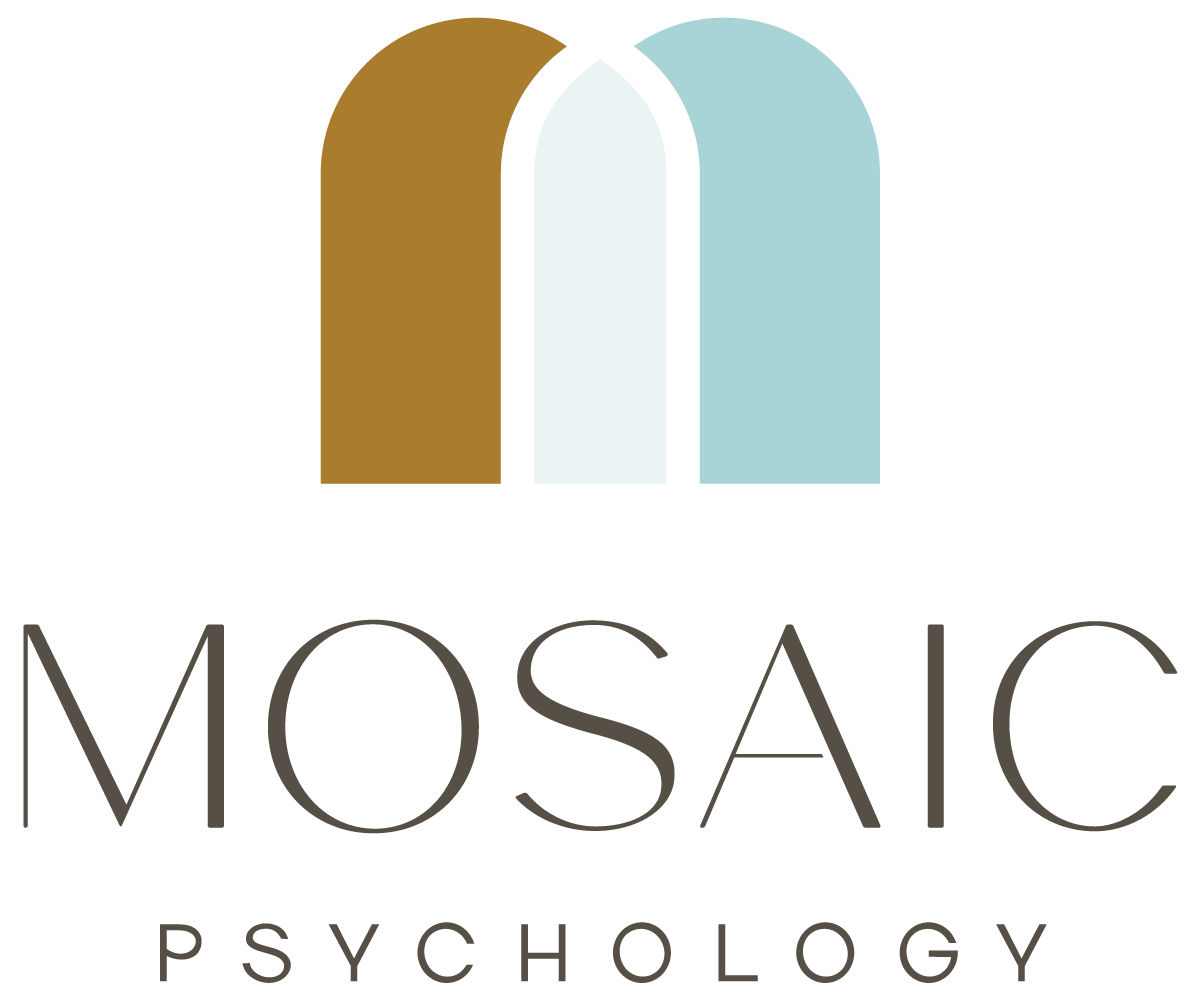
Individual &
Couples Therapy

You want to feel connected, understood, and comfortable with your therapist.
It’s like having an ally helping you be supported as you face your challenges and adapt and thrive. With a collaborative and evidence-based approach, we strive to create a safe and inclusive space where individuals can heal and grow.
We offer couples and individual therapy.
Areas for couples therapy: conflict/communication, betrayals, infidelity, substance use recovery, emotional intimacy, physical/sexual intimacy
Areas for individual therapy: anxiety, depression, trauma, OCD, grief, self esteem, perfectionism, grief, and interpersonal relationships
Relationships are a large part of the practice and this includes single people who might be wanting to work on their past relationship issues, current relationship, or challenges with finding/maintaining a relationship.
Click to learn more:
Couples Therapy
Create the loving, secure and stable relationship you’ve always wanted.
Are you and your partner stuck in conflict loops that you can’t get out of? Are you struggling to communicate and understand each other? Are you feeling emotionally disconnected and withdrawn? I help couples learn how to communicate and build a more peaceful and loving relationship.
Here at Mosaic Psychology, we use an approach to couples therapy called The Gottman Method. The Gottman Method for Couple Therapy is an evidence-based approach to couples counseling developed by Drs. John and Julie Gottman. Based on over four decades of research on couples and relationships, the method aims to help couples build and maintain healthy, lasting relationships.
In addition to the Gottman Method, couples therapy at Mosaic Psychology also uses elements from cognitive behavioural therapy (CBT) and emotional focused therapy (EFT). Couples therapy can help couples by providing them with valuable tools, insights, and support to improve their emotional intimacy and connection.
Investment: $300 per 50-minute session
Issues we commonly address:
Communication skills
Conflict management
Emotional intimacy
Physical intimacy
Substance use issues
Pornography
Affairs
Betrayals & resentment
Depression
Anxiety
Trauma
Couples Therapy Process
The process starts with a conjoint interview session where you and your partner discuss your challenges, relationship history, and goals. This is followed by individual interview sessions where we get the chance to dive deeper into identifying the key issues. There is also an optional online questionnaire that gathers important information about your relationship. From there, therapy goals and a tailored treatment plan are developed. You will learn a new framework to help you understand your relationship, its strengths and challenges, and learn tools to help you resolve your relationship concerns. Treatment is typically 8 to 20 sessions.
It's important to remember that couples therapy is a collaborative process, and both partners need to be committed to making positive changes.
Individual Therapy for Relationships
Are you yearning for a profound connection with a significant other? Do you find dating exhausting or discouraging? Do you find yourself trapped in repetitive and ineffective relationship patterns? Are you grieving the loss of a relationship?
We are inherently wired for connection, our desire for a deep bond with a life partner is a fundamental aspect of our nature. We all crave the experience of being loved, desired, appreciated, and supported. Unfortunately, the journey towards a fulfilling and loving relationship is often fraught with challenges. This is where individual therapy for relationships can play a transformative role.
Individual therapy for relationships is available for people looking for a partner, grieving the loss of a relationship, or having difficulties in a current relationship.
Treatment Modalities
The primary treatment modalities at Mosaic Psychology are:
Cognitive Behavioural Therapy (CBT)
Gottman Method
Compassion Focused Therapy
Dialectical Behaviour Therapy (DBT)
Acceptance and Commitment Therapy (ACT)
Mindfulness-Based Cognitive Therapy (MBCT)
Schema Therapy
INDIVIDUAL Therapy Process
The process starts with an initial session where you discuss your challenges, personal and relationship history, and goals. From there, therapy goals and a tailored treatment plan are developed. You will learn a new framework to help you understand your challenges and learn new ways of thinking and behaving.
Treatment is typically short-term (e.g., 8-16 sessions). It is a collaborative experience that emphasizes the active participation and equal partnership between the therapist and the client.
Individual Therapy for Mental Health
We provide individual therapy primarily using Cognitive-Behavioural Therapy (CBT). CBT is evidence-based and skills focused. The goals of CBT are to help individuals identify and change unhelpful thought patterns and behaviours that contribute to emotional distress and difficulties. CBT is a short-term, evidence-based therapy that is effective for a wide range of mental health concerns.
Some of the main goals of CBT include:
Increase Self-Awareness
CBT encourages self-reflection and self-awareness, helping individuals gain insights into their thoughts, feelings, and behaviours.Identify and Challenge Negative Thought Patterns
One of the primary goals of CBT is to help individuals become aware of their negative or distorted thought patterns that may be fueling negative emotions and behaviours.Modify Maladaptive Behaviours and Develop Effective Coping Skills
CBT seeks to address and modify behaviours that are counterproductive or harmful, helping individuals develop healthier coping strategies and responses.
It is important to note that the specific goals of CBT may vary depending on the individual's unique needs and the nature of the presenting concerns. CBT is a collaborative and goal-oriented therapy, and therapists work together with clients to tailor the treatment to their specific situations and objectives.
Additional evidence-based approaches, such as Compassion Focused Therapy, Dialectical Behaviour Therapy (DBT), Acceptance and Commitment Therapy (ACT), Mindfulness-Based Cognitive Therapy (MBCT), and Schema Therapy may be included into your treatment plan depending on your individual concerns and goals for therapy.
Specialty Areas
Depression
Anxiety and related Conditions (Generalized Anxiety, Social Anxiety, Panic attacks, Specific Phobias)
Obsessive Compulsive Disorder and related disorders
Trauma and Post-Traumatic Stress Disorder
Grief and Loss
Self-esteem
Coping Skills
Stress Management
Family and Interpersonal Conflict
INDIVIDUAL Therapy Process
The process starts with an initial session where you discuss your challenges, personal history, and goals. From there, therapy goals and a tailored treatment plan are developed. You will learn a new framework to help you understand your challenges and learn new ways of thinking and behaving. Treatment is typically short-term (e.g., 8-16 sessions). It is a collaborative experience that emphasizes the active participation and equal partnership between the therapist and the client.
Where to Start?
Step 1
10-Minute
Consultation
An initial consultation appointment can help clarify your areas of concern and suggest a treatment focus.
Step 2
Assessment & Goal Setting
Together, we’ll determine what areas we should focus on during our time together.
Step 3
Virtual
Therapy
All sessions are conducted virtually to provide accessible and convenient care.
To schedule a 10-minute phone consultation, please reach out today.
It can be scary and hard sometimes to float down the river.
But despite the challenges, you have the courage, confidence and trust in yourself to stay afloat.
Through our work together in therapy, you’ll find the tools, mindset, and practice to flow with the water and navigate life.
Therapy FAQs
-
Here are some ways in which couples therapy can be beneficial:
Improved Communication: Couples therapy focuses on enhancing communication skills between partners. Therapists teach active listening, assertiveness, and empathy, allowing couples to express their thoughts and feelings more effectively and understand each other better.
Conflict Resolution: Therapists help couples identify and address the root causes of conflicts in their relationship. Couples learn healthier ways to manage disagreements and find solutions that are mutually satisfying.
Enhanced Intimacy and Emotional Connection: Couples therapy can address issues related to emotional and physical intimacy. Couples learn how to reconnect, express affection, and strengthen their emotional bond.
Increased Understanding and Empathy: Couples therapy fosters a deeper understanding of each other's perspectives, feelings, and needs. This leads to increased empathy and compassion for one another.
Identifying and Changing Negative Patterns: Couples often fall into negative patterns of interaction, such as criticism or withdrawal. Therapy helps couples recognize these patterns and develop new, positive ways of relating to each other.
Rebuilding Trust: Couples therapy provides a safe space to address past hurts and breaks in trust. Therapists guide partners through a process of healing and rebuilding trust in the relationship.
Navigating Life Transitions: Significant life changes, such as becoming parents, aging parents or dealing with career changes, can strain a relationship. Couples therapy can help partners navigate these transitions and support each other effectively.
Promoting Emotional Safety: In a supportive therapeutic environment, couples can express their feelings and vulnerabilities without fear of judgment or criticism, fostering emotional safety and openness.
Strengthening the Partnership: Couples therapy focuses on identifying and building upon the strengths of the relationship. Couples learn to appreciate each other's positive qualities and find ways to grow together.
Proactive Approach to Relationship Maintenance: Couples may engage in therapy as a proactive measure to strengthen their relationship and prevent potential issues from escalating.
-
The goals of CBT) are to help individuals identify and change unhelpful thought patterns and behaviours that contribute to emotional distress and difficulties. CBT is a short-term, evidence-based therapy that is effective for a wide range of mental health concerns.
Some of the main goals of CBT include:
Identify Negative Thought Patterns: One of the primary goals of CBT is to help individuals become aware of their negative or distorted thought patterns that may be fueling negative emotions and behaviors.
Challenge and Restructure Thoughts: CBT aims to challenge the validity of negative thoughts and beliefs and replace them with more balanced and realistic thoughts. By doing so, individuals can reduce anxiety, depression, and other emotional difficulties.
Modify Maladaptive Behaviours: CBT seeks to address and modify behaviours that are counterproductive or harmful, helping individuals develop healthier coping strategies and responses.
Develop Coping Skills: CBT teaches individuals effective coping skills and techniques to manage stress, anxiety, and other emotional challenges. This empowers them to handle difficult situations more effectively.
Problem-Solving: CBT helps individuals develop problem-solving skills to tackle real-life challenges and make constructive decisions.
Increase Self-Awareness: CBT encourages self-reflection and self-awareness, helping individuals gain insights into their thoughts, feelings, and behaviors.
Prevent Relapse: CBT equips individuals with tools to prevent relapse and maintain progress achieved during therapy.
Improve Communication: In cases involving relationship issues, CBT can focus on improving communication and interpersonal skills.
Enhance Self-Esteem: By challenging negative self-perceptions and building on strengths, CBT aims to improve self-esteem and self-confidence.
Promote Lasting Change: The ultimate goal of CBT is to promote lasting changes in thinking patterns and behaviors, enabling individuals to lead more fulfilling and emotionally balanced lives.
It is important to note that the specific goals of CBT may vary depending on the individual's unique needs and the nature of the presenting concerns. CBT is a collaborative and goal-oriented therapy, and therapists work together with clients to tailor the treatment to their specific situations and objectives.
-
The Gottman Method for Couple Therapy is an evidence-based approach to couples counseling developed by Dr. John Gottman and Dr. Julie Gottman. Based on over four decades of research on couples and relationships, the method aims to help couples build and maintain healthy, lasting relationships.
Key principles and techniques of the Gottman Method include:
The Sound Relationship House Theory: This theory outlines the essential elements of a strong and stable relationship. It includes concepts such as building love maps (knowing each other deeply), sharing fondness and admiration, turning towards each other for support, managing conflict constructively, and creating shared meaning in the relationship.
The Four Horsemen of the Apocalypse: These are negative communication patterns that can predict the end of a relationship if left unchecked. They include criticism, contempt, defensiveness, and stonewalling. The Gottman Method helps couples identify and address these destructive communication patterns.
Emotional Bids and Responding: The method emphasizes the importance of emotional bids, which are attempts for emotional connection and attention. Couples are encouraged to recognize and respond positively to each other's bids to strengthen emotional intimacy.
The Love Map Exercise: This involves deepening the couple's understanding of each other by asking open-ended questions and sharing thoughts, feelings, and experiences.
The Fondness and Admiration System: Couples are encouraged to express fondness and appreciation for each other regularly, fostering a sense of admiration and respect in the relationship.
Rituals of Connection: The method encourages couples to establish and maintain meaningful rituals or routines that foster connection and bonding.
The Dreams within Conflict Technique: During conflicts, the Gottman Method helps couples uncover their underlying dreams, values, and aspirations to find common ground and understanding.
Aftermath of a Fight and Repair Attempts: Couples are guided on how to repair and de-escalate conflicts after they occur to prevent long-term damage to the relationship.
The Gottman Method is known for its practical and structured approach, providing couples with tools and strategies to enhance their communication, manage conflict, and build a deeper emotional connection. Therapists using this approach conduct thorough assessments and use research-based interventions tailored to the specific needs of each couple.
-
The process starts with an initial session where you discuss your challenges, personal history, and goals. From there, therapy goals and a tailored treatment plan are developed. You will learn a new framework to help you understand your challenges and learn new ways of thinking and behaving. It is a collaborative experience that emphasizes the active participation and equal partnership between the therapist and the client.
-
The process starts with a conjoint interview session where you and your partner discuss your challenges, relationship history, and goals. This is followed by individual interview sessions where we get the chance to dive deeper into identifying the key issues. There is also an optional online questionnaire that gathers important information about your relationship. From there, therapy goals and a tailored treatment plan are developed.
-
There is domestic violence in the relationship.
For cases involving domestic violence, therapy is typically not recommended as a solution. Individuals experiencing abuse should seek assistance to safely exit the relationship. Couples who have encountered occasional lapses in judgment involving minor physical actions like pushing, slapping, or shoving may find couples therapy appropriate.One partner has reached the conclusion that the relationship is over.
If you are already certain about ending the relationship and are participating in therapy solely to appease the other person prior to the breakup, the chances of therapy yielding success are minimal.There is a secret withheld in your relationship.
From concealed romances to undisclosed drug use, hidden truths profoundly affect the bedrock of relationships and couples therapy. If a secret has been divulged, therapy can play a valuable role in addressing the aftermath of the betrayal caused by the secret, fostering healing, and restoring trust.You ask the therapist to take sides.
A therapist is not a referee. If you are looking for someone to help you blame your partner this is not for you. Success depends on each person’s ability to take guidance from the therapist and engage in therapeutic interventions. A therapist doesn't function as a judge. If your intention is to find someone who will assign blame, couples therapy might not be your goal. The effectiveness of the process depends on each person's ability to embrace the therapist's guidance and actively participate in therapeutic strategies.Lack of action outside of session.
As they say, “the more you put in the more you get out”. Therapy is not a quick fix. It requires dedication, practice, and ongoing commitment to apply changes outside the therapy sessions.








